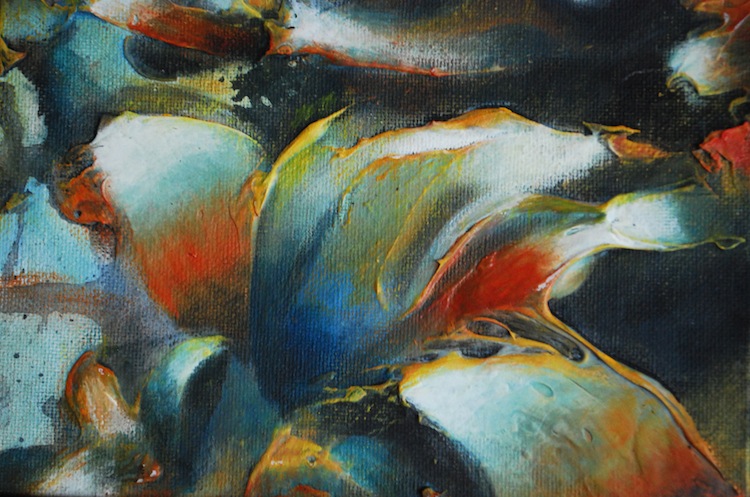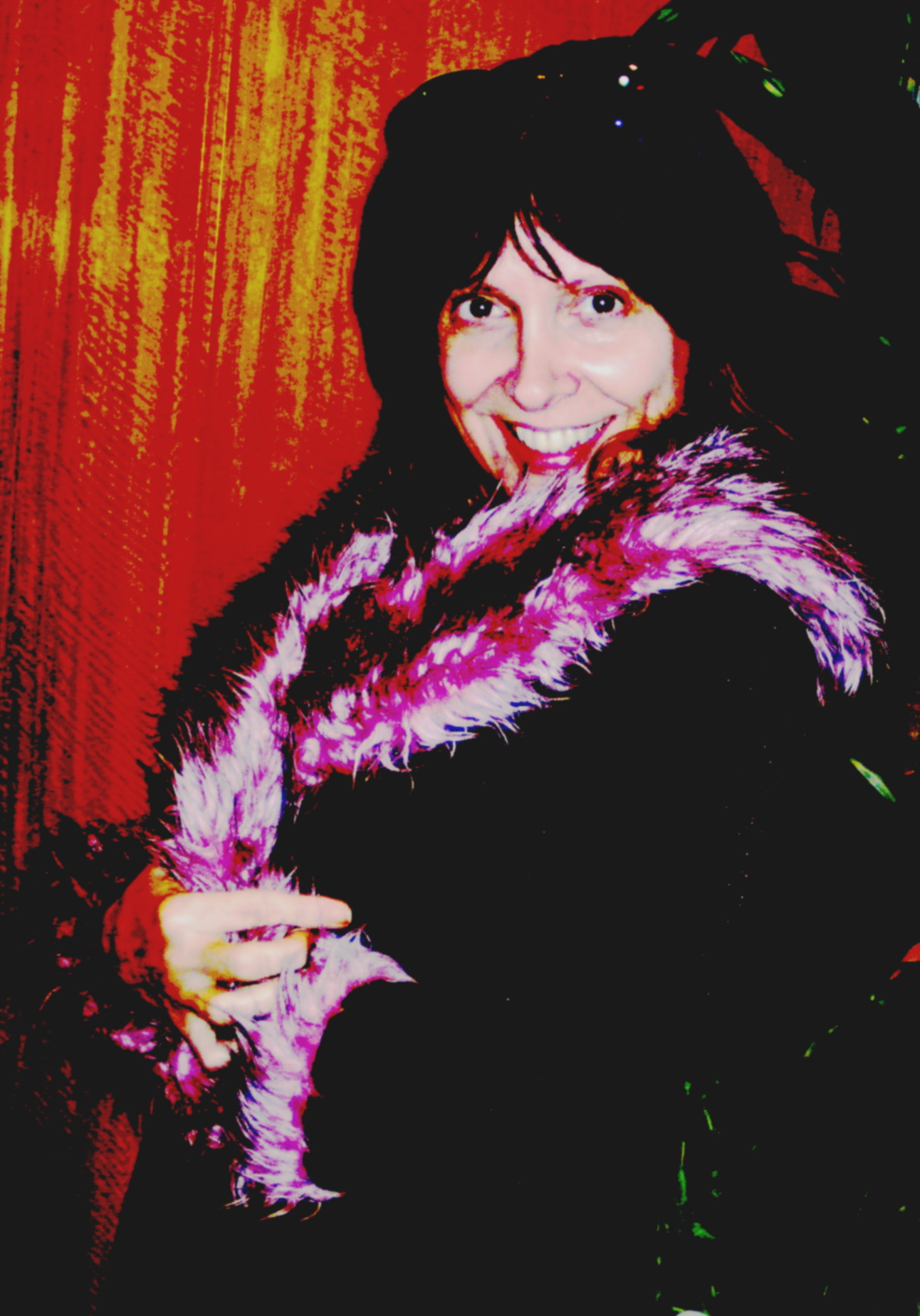Rotogravure: Fatigued Thread
The pony-tailed woman at the end
of the table, Leta, the kind of girl
usually accompanied by a golden retriever,
needs no makeup. The lily of her hand
touches a necklace of glass beads
at her throat. A present her boyfriend,
Ramón, bought from the curio cart
(far right) on their way to the table.
She is about to develop the habit
of holding one between her teeth—
their smoothness against her tongue
soothes. In a year, while taking a drive
to calm herself, the fatigued thread
will break and a bead will lodge in her
windpipe. Her silver Escalade will careen
into an iron-webbed electrical tower
knocking out power to 228,000 homes.
At least eighty babies will be conceived
that night. Leta leans toward Ramón
trying to insert herself into his ear.
Handsome as a well-crafted chair, Ramón’s
everything fits together exactly, dark
wood grain glinting in sunlight. His shoulder
tilts away, arm down: he has dropped
his napkin, is retrieving it—in two years,
the thought of that fallen napkin
will make him smile at the worst
possible moment: the masked
thief will guess Ramón thinks him small,
harmless, and in the heat-blast of rage,
will be deaf to the shots he’ll squeeze off—
in another moment, Ramón will secure
the napkin and inadvertently run
the back of his hand against the bare
knee of the lovely Moira. Something
will spark. He looks straight
into the camera, not yet wanting
to unmake his choices. Moira is toasting
the photographer, crystal of thick liquid,
raised, partially obscures her face, her lips
a blur behind the goblet. Knitted blooms
burst from the lapel and bosom of a sweater
too ugly to be inexpensive. Moneyed,
orphaned, and between marriages,
she lacks nothing. In a year, after
Leta finds the hideous sweater, after
her tear-streaked pleading, her
midnight drive, Ramón will spend
long nights with his head in his hands.
So Moira will buy him
a café, fill it with candlelit leaded
glass. Lovers will conspire, infatuation
wrapped around their bodies, breathing in
great gulps of each other. Their oneness
will be a bird in Ramón’s bowels
eating away at his shell. Eventually,
Moira, weary from the weight of him,
will close the door, break off her key
in the lock. He’ll become a fixture,
the barstool, and that’s when he’ll hand
over the cash without fear or even
regret. The thief will fume. Ramón
will remember: Leta’s glass beads,
the lightning of the flashbulb, his slow reach
for the stiff linen, cool against
his fingertips, its attention perfect.

Art Infomation
- "Alegria" © Vivian Calderón Bogoslavsky; used by permission.
 Elizabeth Iannaci is a widely published and anthologized Los Angeles-based poet whose work has appeared in the Saranac Review, Verse Wisconsin, Crab Creek Review, Pentimento, and Italian Americana, to name a few. She has read at venues in the United States, Slovenia, Istanbul, and Paris. Iannaci earned her MFA in Poetry from Vermont College of Fine Arts, was a finalist for the New Letters Literary Award, and writes letters on real paper, delivered by humans.
Elizabeth Iannaci is a widely published and anthologized Los Angeles-based poet whose work has appeared in the Saranac Review, Verse Wisconsin, Crab Creek Review, Pentimento, and Italian Americana, to name a few. She has read at venues in the United States, Slovenia, Istanbul, and Paris. Iannaci earned her MFA in Poetry from Vermont College of Fine Arts, was a finalist for the New Letters Literary Award, and writes letters on real paper, delivered by humans.
